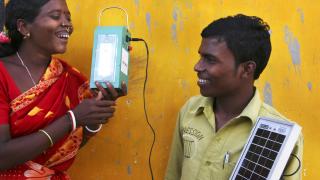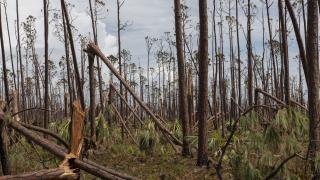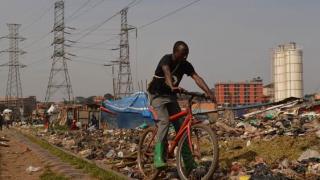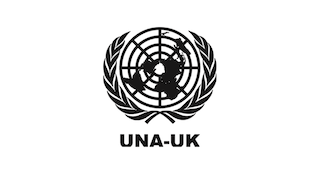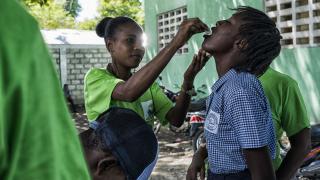
Next year could be decisive for the world. We are approaching a number of “tipping points” – planetary, economic, social and political – that have deep implications for the future of humanity. But there is still time to change course. Here are 10 opportunities we should seize.
1.
UN75 global conversation (January launch). To mark its 75th anniversary in 2020, the UN will launch the biggest-ever global conversation on the future we want, threats to that vision and how we can overcome them by working together across borders, generations and sectors. Starting in January, the UN will work with partners including UNA-UK to hold dialogues across the world: in classrooms and boardrooms, parliaments and village halls, online and on the streets.
2.
Beijing+25 – pushing forward on women’s rights (March). 2020 is the 25th anniversary of the Beijing Declaration and Platform on Action adopted at the Fourth World Conference for Women. Together, they cover issues such as human rights and economic power – and remain unrealised. Starting with the Commission on the Status of Women in March, next year holds several opportunities to protect and further this cause.
3.
Youth plenary – a crucial platform for engagement (April). The Presidents of the General Assembly and Economic & Social Council will invite young people to take part in a dialogue ahead of the UN’s 75th anniversary. The results will be presented by youth representatives to leaders at the September event to mark UN75. At present, they are the only civil society speakers permitted at that event. UNA-UK is working hard to change that.
4.
Nuclear non-proliferation treaty – marching orders? (May). The Treaty on the Non-Proliferation of Nuclear Weapons (NPT) has been pivotal for halting the spread of these weapons. Recent review conferences have made little to no progress. Growing frustration at nucleararmed states’ failure to uphold their obligations to disarm led to the creation of a treaty prohibiting nuclear weapons. 2020’s Review could bring rapprochement, or see the possible collapse of the NPT.
5.
Banning weapons in populated areas – getting over the line (May). Armed conflicts are increasingly fought in populated centres, with weapons designed for open battlefields. Here explosive weapons are likely to have indiscriminate effects. Encouraged by the UN Secretary-General and the International Network on Explosive Weapons, dozens of governments will meet in Dublin to adopt a political declaration, potentially limiting the use of some types of weapon.
6.
Ocean Conference – protecting life below and above water (June). The ocean absorbs about 30 per cent of CO 2 we produce and over 3 billion people’s livelihoods depend on it. Rising temperatures, acidification and waste threaten its health. In 2020, a major summit will take place in Lisbon. A declaration is scheduled for adoption, with a plan on cleaning the ocean, protecting fish stocks and implementing the law of the sea.
7.
High Level Political Forum (HLPF) – turbocharging the global goals (July). In 2020 the decade of action and delivery of the Sustainable Development Goals (SDGs) begins. Next year is the dead - line for the first 21 targets (of 169) and over 50 states have volunteered to present reviews of their progress so far. It is likely that the HLPF summit in New York will provide the first clear indication of whether the world is on track to deliver the SDGs by 2030.
8.
A world summit? Raising ambition for global governance reform (September). In negotiating the resolution for UN75, states decided to mark the UN’s anniversary with a limited one-day high-level meeting. A “forward-looking” declaration will be adopted. Civil society won’t be given the floor. UNA-UK is calling for states to agree concrete steps to improve global governance and for the event to launch a process of further reform.
9.
Biodiversity Conference – staving off extinction (October). In 2019 the UN reported that around one million species are at risk of extinction. The event in Beijing is a meeting of the Conference of the Parties to the Convention on Biological Diversity, the Cartagena Protocol on Biosafety and the Nagoya Protocol on Access and Benefit-sharing. States are due to agree a 10-year plan for ensuring that humans aren’t added to the endangered species list.
10.
Climate conference in Glasgow – have we done it? (November). The 26th session of the Conference of the Parties (COP 26) to the UN Framework Convention on Climate Change (UNFCCC) is the biggest and most important climate summit since Paris, perhaps ever. To avert catastrophic climate change, carbon emissions will need to have peaked by the end of 2020. States are due to submit plans for reducing emissions to meet 2030 targets.

